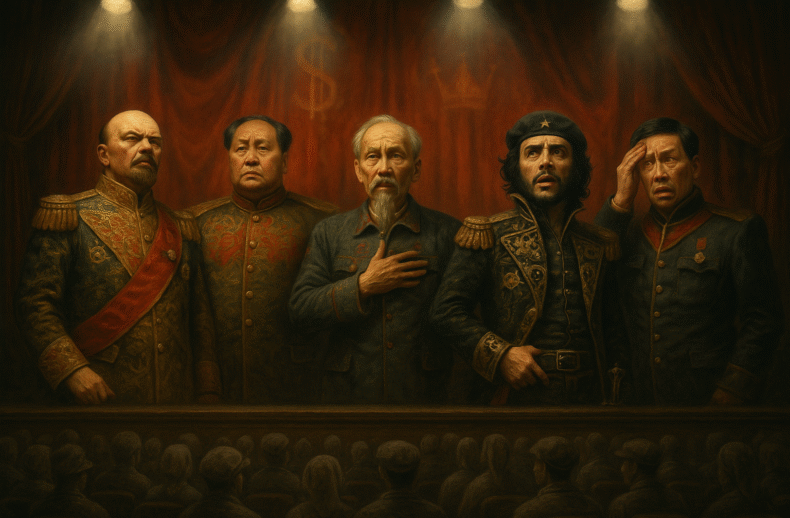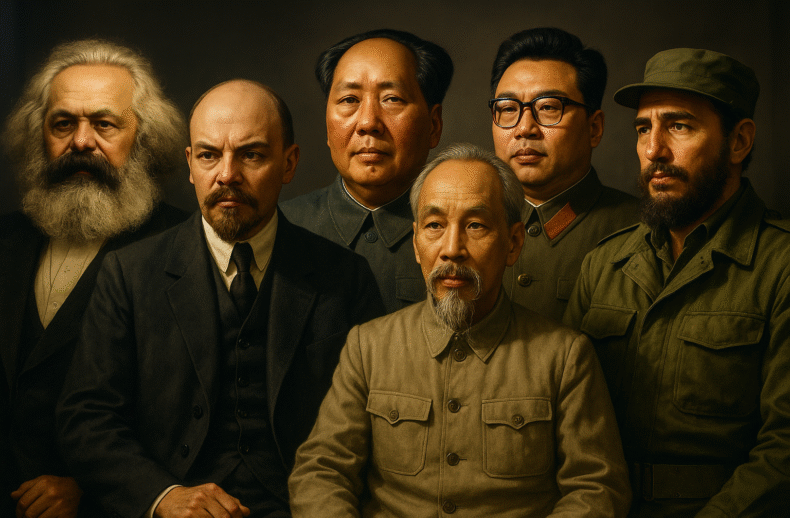This essay examines how communist movements around the world diverged from classical Marxist theory, revealing instead a pattern of pragmatic nationalism and personal recognition-seeking by revolutionary elites. From Lenin to Ho Chi Minh, Mao to Castro, most leaders did not emerge from the working class but from educated, privileged backgrounds. Eidoism interprets these revolutions as expressions of a deeper recognition loop—where personal ambition, moral narcissism, and the desire for historical legacy re-coded revolutionary ideology into a stage for performance, rather than a path to true equality or form.



